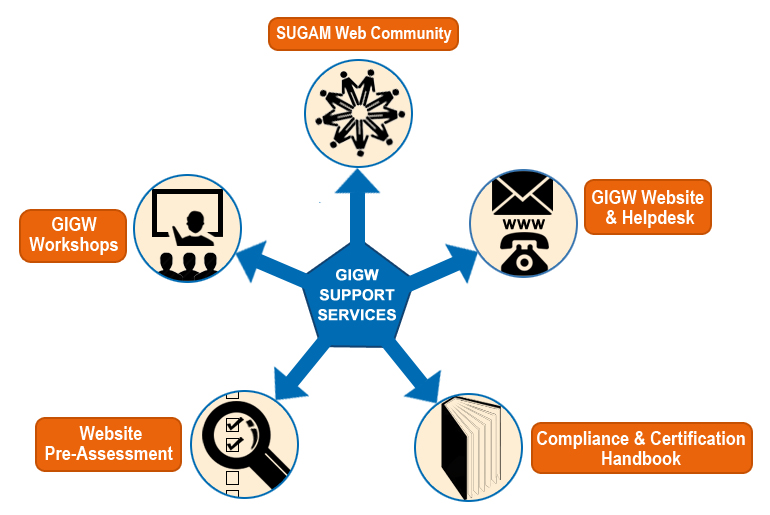
Trusted Cybersecurity Services. World-Class Training. Real-World Impact.
Compliance Management

CyberTech provides comprehensive compliance support for the Guidelines for Indian Government Websites and Apps (GIGW), including the latest GIGW 3.0 framework. These guidelines ensure that government websites, web portals, and mobile applications are secure, accessible, and citizen-centric. A strong cybersecurity foundation is central to GIGW, helping government entities safeguard sensitive data while delivering reliable and transparent digital services.
By aligning with GIGW standards, organizations enhance data protection, mitigate risks, ensure regulatory compliance, and build citizen trust. Our expert-driven approach helps government bodies implement secure architectures, follow best practices, and maintain continuity in mission-critical services.
Cybersecurity compliance under GIGW delivers: Enhanced Data Protection — Protects sensitive government and citizen data from breaches. Regulatory Compliance — Ensures adherence to IT Act, CERT-In advisories, and data protection norms. Improved Risk Management — Identifies and mitigates threats before they impact operations. Increased Trust — Strengthens citizen confidence in government digital services. Operational Continuity — Ensures systems remain available and secure during cyber incidents.
Safeguards sensitive information, ensures data accuracy, and maintains service reliability for citizens.
Defends websites and apps against phishing, malware, injection attacks, and other cyber threats.
Compliance with standards like ISO 27001 and OWASP Top 10 builds user trust and improves digital service credibility.
Reduces the likelihood of breaches and downtime, saving government resources through proactive security.
Enables secure and consistent integration with platforms such as DigiLocker, Aadhaar, and India Portal.
Identifies security risks early and provides countermeasures to prevent data theft and service disruptions.
Conduct NIC/STQC/CERT-In empanelled security audits to obtain “Safe to Host” certification before deployment.
Implement HTTPS with HSTS, SSL certificates, and strict transport rules to ensure encrypted communication.
Deploy and configure a cloud-based WAF to protect against common web threats such as SQL injection and XSS.
Apply security patches, configure access controls, and perform regular Vulnerability Assessment and Penetration Testing (VA/PT).
Ensure WCAG 2.1 Level AA accessibility while maintaining strong security safeguards.
Provide secure APIs and scalable frameworks for integration with government platforms like DigiLocker, MyGov, and India Portal.